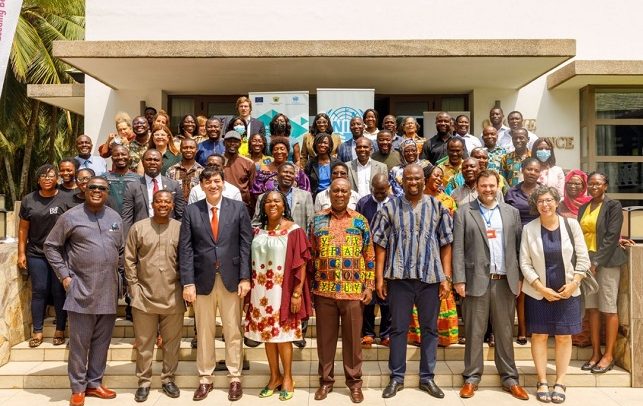The first cluster conference for Small And Medium Enterprises (SMEs) has been held in Accra to strengthen inclusiveness and boost industrial competativeness.
The conference hosted by the EU- funded West African Competitiveness Program (WACOMP) and implemented by United Nations Industrial Development Organisation (UNIDO) and Ministry of Trade and Industry (MoTI) was aimed at promoting Ghanaian SMEs clusters results as a sustainable way to enhance the country’s competitiveness and integration in the African Continental Free Trade Area (AfCFTA).
Organised in collaboration with the Ghana Export Promotion Authority (GEPA) and the Association of Ghana Industries (AGI), the conference also created that platform for participants to exchange with national authorities on ways to further upscale the approach and start brainstorming on possible ways to institutionalize the cluster approach at the Ghanaian level.
UNIDO Representative in Ghana and Liberia, Fakhruddin Azizi, in his address said the initiative in Ghana is targeting 3 value chains namely Cassava and its derivatives, Fruits (mango and pineapple) and Cosmetics and personal care products.
He commended the strong cooperation between UNIDO and the government towards attaining the 2030 Agenda for Sustainable Development, especially in relation with areas such as energy and environment, investment, and quality standards.
Mr. Azizi also enphasised the successful achievements of WACOMP, which can become a reference in the region, in terms of enhanced value addition, low carbon, sustainable production and processing and increased access to regional and global markets.
Chief Director of MoTI, Patrick Nimo, said agric based industry is a high priority for the government and thus urged the organisers to consider investing into a common user facility particularly the cosmetic sector to help small businesses scale-up.
Team Leader, Macro-Economic and Trade Section of the European Delegation to Ghana, Timothy Dolan, said, “Supporting SMEs and promoting cluster approach and cooperation is indeed a strategic approach to ensure Inclusive and Sustainable Industrial Development.
He said such an approad would ensure that no one is left behind and that women can fully take advantage of the opportunities offered by the African Continental Free Trade Agreement.
Chief Technical Advisor of WACOMP-Ghana, Charles Kwame Sackey, noted that business clusters are core actors of change in the country’s industrial strategy.
He therefore stressed that strengthening their resilience and their capacity to cooperate and trust each other should be the target of policy makers.
Over 120 SMEs attended the conference which also showcased products from Ghanaian entrepreneurs exporting their products benefiting from the WACOMP – Ghana project.
By Jamila Akweley Okertchiri


